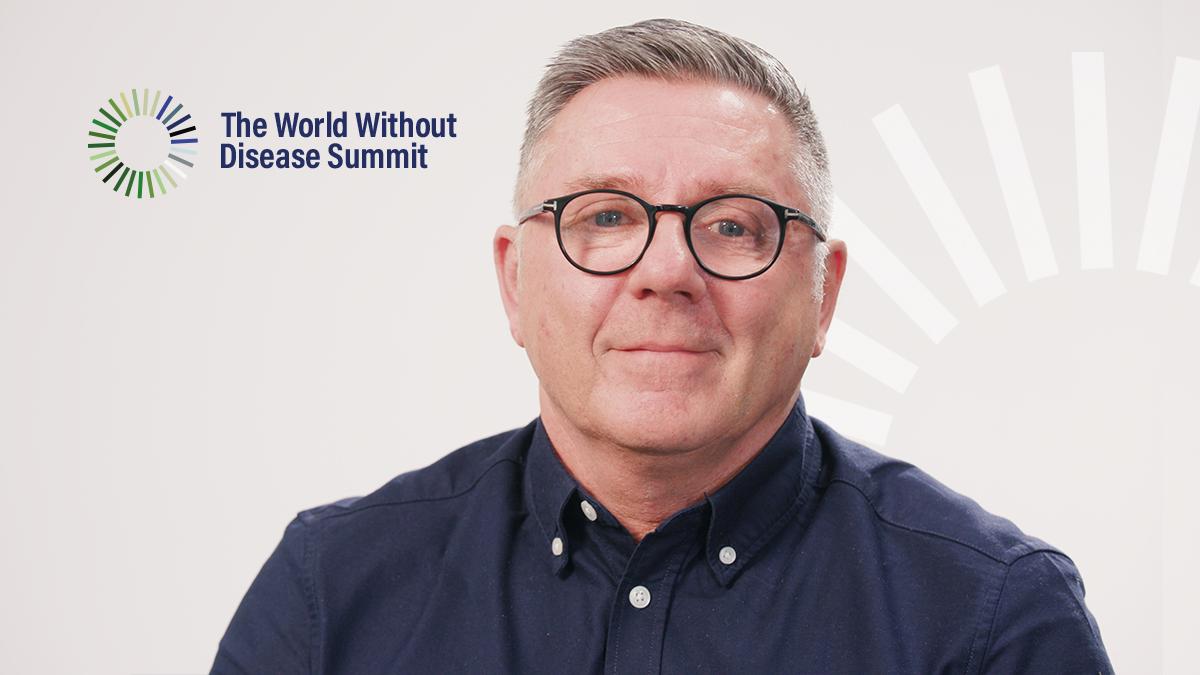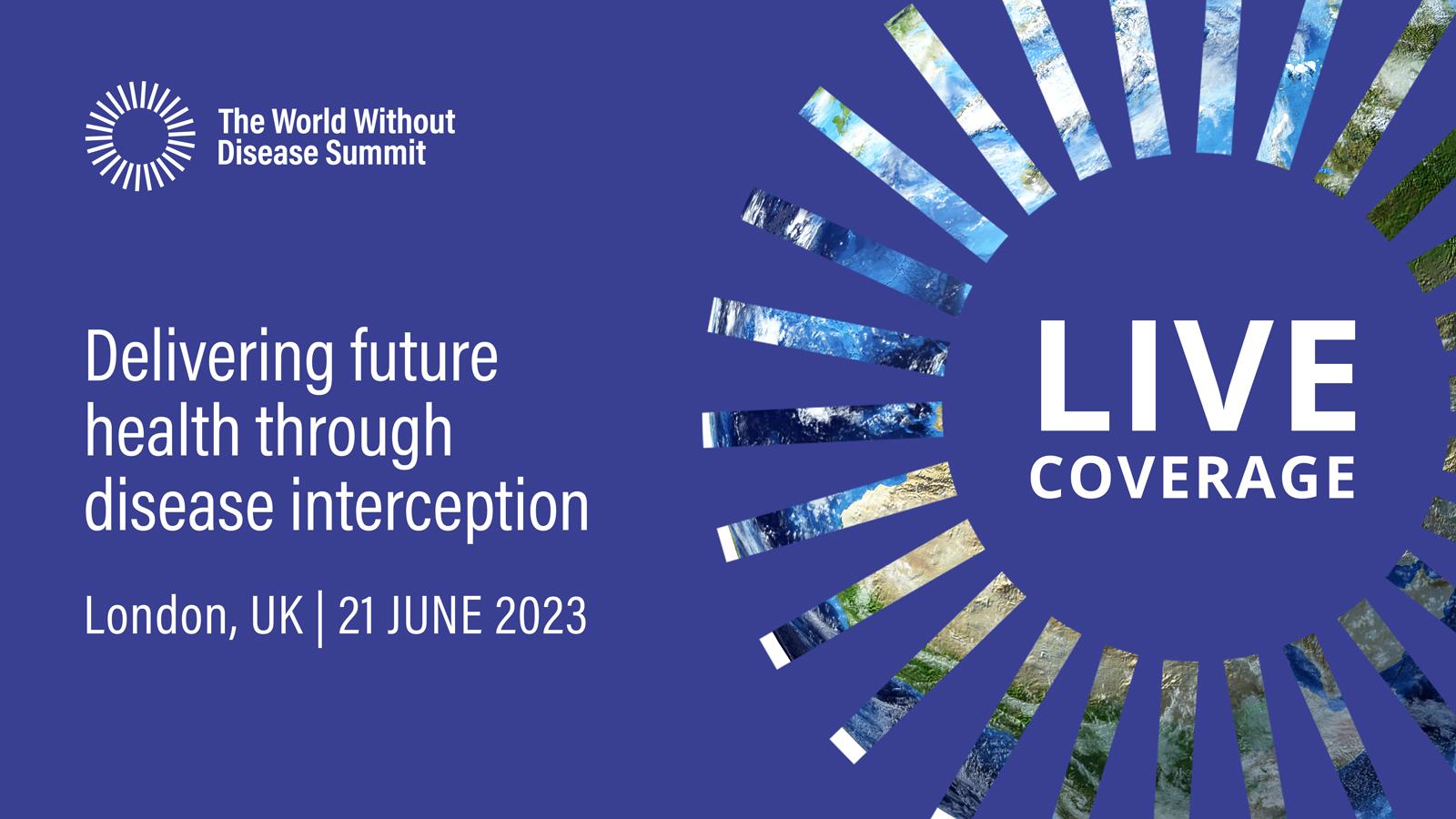How can we achieve a world without disease?

Delivering the vision of a world where disease is no longer an insurmountable burden for patients and healthcare professionals would be a phenomenal achievement in the history of medicine. But how can companies work to address existing clinical, regulatory, and investment challenges to realise this opportunity?
This is a core question that delegates at the World Without Disease summit will be discussing on 21st June at The Royal Society of Medicine in London. In anticipation of the event, pharmaphorum spoke to Stephen Head, senior director, Patient Partnerships at Astellas Pharma Europe, to find out more about how we can achieve a world without disease.
What does a world without disease mean to you?
A world without disease is the utopia. For me, this revolves around a three-pronged approach – how do we prevent disease through early screening and detection; how do we personalise our approach to treatment through a deeper understanding of the genome; and how do we take a new and novel approach towards potentially curing disease altogether? In my view, these three elements need to be addressed in parallel to ensure we create a holistic approach to combatting disease.
Take a communicable disease like HIV, for example, where equal focus has been given to education and prevention, interventions that prevent onward transmission, and the development of optimal treatment schedules that improve side effect burden and quality of life. The outcome of this approach is that HIV is now recognised as a chronic disease that can be successfully managed on a long-term basis. This would not have been thought possible 30 years ago and could not have been achieved without direct interaction with the patient community.
In terms of prevention, human papillomavirus (HPV) vaccines can protect against diseases caused by certain HPV types, and around 27,000 cervical cancer cases and 12,000 deaths can be prevented by HPV vaccination each year in Europe alone. The scale of success has been so great that, in 2018, the World Health Organization launched the Cervical Cancer Elimination Initiative, driving towards the elimination of cervical cancer as a public health issue by 2030.
Similar strides towards elimination have also been made in hepatitis C - a preventable, treatable and for most people, curable condition. In fact, in some European countries, around 98% of people with hepatitis C are now approaching cure, up from 41-65% in 1999, with one in five patients with advanced liver disease able to be delisted from the liver transplant waiting list. This is a phenomenal achievement, enabling people to become disease-free, more productive, and contribute back into society.
Ultimately, we must ensure the patient voice is incorporated at each of these steps and at every opportunity along the medicine development process, from discovery to delivery. Ensuring we have a deep understanding of the person and their needs, what they value in a medicine or an intervention, and how this will impact their quality of life or outlook on life will only help to drive better outcomes suited to their individual needs.
What are the current barriers that stand between us and a world without disease?
From my point of view, the barriers often come back to investment, creating frameworks for robust joined-up approaches, and the ability of healthcare systems to adopt new models in a time of incredible scientific advancement.
At the individual level, the question is: how do we identify people who are perhaps asymptomatic and don't know they have a particular condition? It's about trying to reach people – perhaps by targeting those at risk or who could be at risk – to achieve that critical early detection, early diagnosis, and early intervention.
For the pharmaceutical industry, evolving to an approach where understanding what patients need and want is at the forefront of all decisions and where including the patient voice front and centre is no longer an option, but a must. This is a huge cultural change for our industry, but nevertheless will [happen] and is happening. It is evident in the recognition from regulatory bodies such as the FDA and EMA that there is an urgent need to be more patient-centric.
Ideally, whether we look at the macro or micro level, a partnership approach is needed, involving multiple stakeholders across advocacy, academia, government, and industry. If we can bring that government commitment, political will, the R&D prowess of academia, and the pharmaceutical sector, and the involvement of advocacy groups to elevate the patient voice, to the table, we will put ourselves in a better position to identify those barriers, be able to drive people to come forwards and linked into care, and collectively mobilise towards a world without disease.
How can we bring the vision of a world without disease to life?
Undoubtedly there has to be that political will and commitment from governments to unite behind a common goal. There must also be a mobilisation towards addressing health inequalities and achieving universal access. We must ensure that the infrastructure and programmes we put in place are inclusive, equitable, and sustainable - whether that relates to prevention, treatment, or cure.
The global response to the COVID-19 pandemic showed how quickly industry and scientists came together to develop an effective solution. This was a truly disruptive scientific approach that aptly demonstrates what can be achieved in a short space of time, with 13 billion doses of COVID-19 vaccines delivered to patients worldwide within a span of 12 months.
The global pandemic also spotlighted that we need to think and act like a global community – how can we ensure we build infrastructure, create resilient health systems, and lay the foundations for universal health coverage to address the glaring inequalities in access to health? When we think about a world without disease, this has to be at the fore: we have to have an equitable and sustainable approach to address these major public health issues.
There are clear challenges, but if there is commitment, drive, and passion to achieve this aim, we have shown it can be done.
What role can patients play in advancing us towards the end goal of disease prevention?
Clearly, it is not just at the global level where we can positively impact the future of healthcare, but at the local and individual levels, too. Ultimately, we all have a role to play in our health – whether that is through understanding our own predeterminants for disease or managing our behavioural risk factors. For me, it's about knowledge and using that information to make an informed choice about our own health, but perhaps also how we can use that understanding and insight for the greater good.
When we consider that the average length of a medicine’s lifecycle is 10-12 years, before a product is even launched onto the market, there is an opportunity to bring the patient voice in at every stage. At the end of the day, there's no point in developing a medicine that has to be taken six times a day and once during the night, with food, if better alternatives could be made available. So, if it's not going to work, we need to understand that early on in the process, as those patients' behaviours will help drive the success of an intervention or public health programme. If it matters to patients, then it should matter to us.
How is Astellas working to get us closer to the goal of a world without disease?
At Astellas, we are embracing this change and transformational evolution through the creation of a division devoted to identifying new and meaningful opportunities to improve the patient experience and integrate unique patient insights across the medicines' lifecycle.
We work to actively build people's voices into everything we do, gathering insights to steer and shape the work we are doing, and understanding those areas of greatest unmet need and how we bring healthcare solutions that address those needs.
We need to partner and collaborate with all those in the healthcare ecosystem to bring their insights to the organisation to help our scientists make informed choices around what we can deliver for patients, whether that's in the area of targeted therapies or, indeed, further down the line with cell and gene therapies. This is at the core of Astellas.
Stephen Head will be speaking at the World Without Disease Summit on 21st June at The Royal Society of Medicine in London. Sign up now to register for this one-of-a-kind event.














